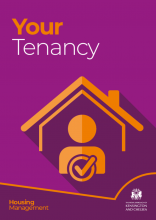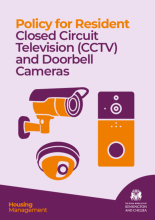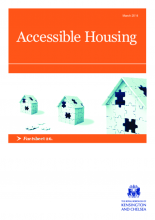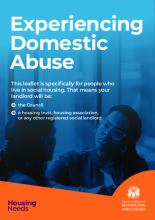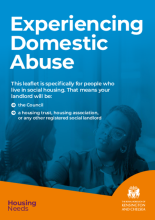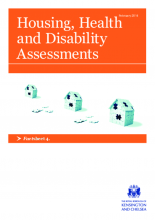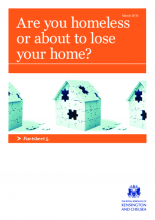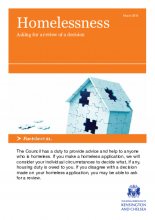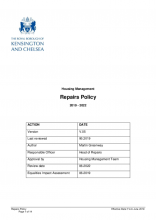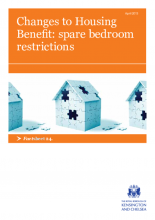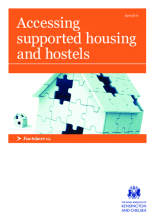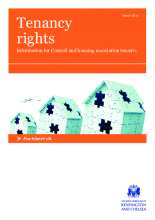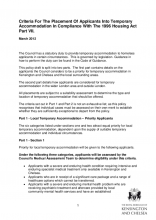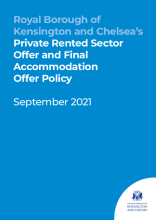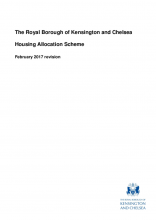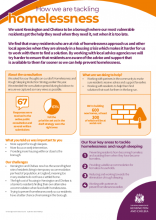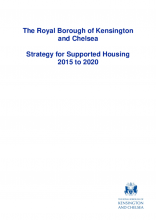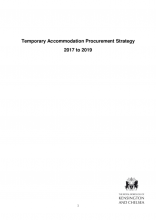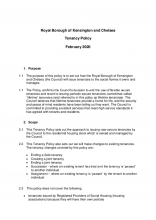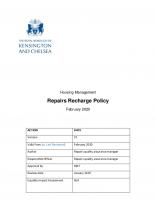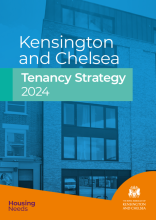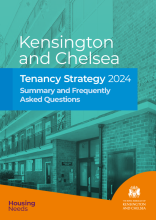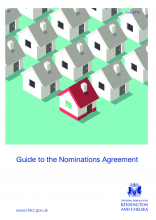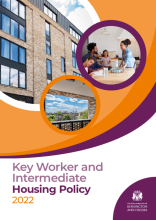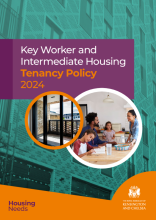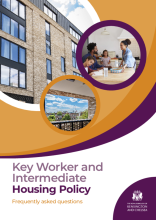Housing reports, policies and publications
Housing Management - Tenant’s handbook
The following handbook provides you with information about the services Housing Management offer, as well as help about your tenancy. It explains what you can expect from us and what we expect from you. You will find information on a range of topics including how to request a repair and how to pay your rent.
We want to deliver the best possible housing service to you, but if you have any concerns, this handbook has details about how to contact us if you want to make a complaint.
Housing publications
We have put together some housing factsheets on key housing issues. The factsheets provide a very basic summary of the issue, the possible actions you can take, and who to contact for further information.
We are currently reviewing a number of our factsheets. If you cannot find what you are looking for, please contact Housingline on 020 7361 3008 or email [email protected].
For the Grenfell Rehousing Policy and Grenfell support newsletters, please visit the Grenfell Support website.
Housing policies and strategies
- Communal Areas and Private Balcony Storage Policy
- Pets Policy
- HM Succession of Tenancy and Assignment Policy
- Improvements to your home Policy
- Housing Management Anti-Social Behaviour Policy
-
- Introduction
- Aims
- Related documents
- Legal context
- Policy statement
- Antisocial behaviour (ASB)
- Hate Crime/Incident
- Reporting antisocial behaviour
- Support for complainants and witnesses
- Assessing incidents of ASB
- Non-legal tools used to abate ASB
- Legal remedies
- Reporting
- Version control
Appendices
- Appendix 1 - Neighbourhood Management Grading and Service Standards
- Appendix 2 - Assessing incidents of ASB
- Introduction
- This Policy outlines the Council’s approach to addressing antisocial behaviour affecting or caused by tenants, leaseholders and freeholders in Council properties and estates. The Housing Management Service within the Council is responsible for delivering this antisocial behaviour policy.
- Antisocial behaviour can also damage the sustainability of communities and adversely affect the Council’s ability to let our properties. Residents who are experiencing antisocial behaviour and report such incidents to the Council, will be supported and their concerns fully addressed.
- Antisocial behaviour can be a destructive force within communities and the lives of a significant number of people within those communities can be negatively affected by the behaviour of an unreasonable minority.
- Everyone has a right to live in a safe environment that allows them the quiet enjoyment of their home and community. Equally, every resident has the responsibility not to interfere with their neighbour’s quiet enjoyment.
- Aims
- This policy aims to:
- reduce the amount of antisocial behaviour (ASB) experienced by residents and customers
- facilitate the development of sustainable communities where people want to live and feel safe
- provide quality housing management services that reflect best practice, are in line with legislation and statutory guidance for ASB
- increase confidence amongst residents, by clearly communicating with residents around ASB and providing a clear process for reporting, investigating and managing ASB.
- Where there is sufficient evidence, the Council will take appropriate enforcement action against any identified individuals and act on behalf of residents who are subjected to ASB.
- This policy aims to:
- Related documents
- ASB Procedure
- ASB Equality Impact Assessment
- Community Safety Strategy
- Domestic Abuse Policy
- Hate Crime protected characteristics list
- Legal context
- The Crime and Disorder Act 1998
- The Anti-Social Behaviour Crime & Policing Act 2014
- The Housing Act 1985
- The Housing Act 1996
- The Housing Act 2004
- The Anti-Social Behaviour Act 2003
- The Equalities Act 2010
- The Data Protection Act 1998
- Protection from Harassment Act 1997
- Human Rights Act 1998
- Police & Justice Act 2006
- Policy statement
- The Council is committed to ensuring that any resident who perpetrates ASB against another resident or non-Council resident will be made answerable according to the conditions of their licence/tenancy/leasehold agreements with the Council. Council residents are responsible for all members of their household and visitors.
- Any actions related to ASB will be treated seriously by the Council and investigated fully. If a non-Council resident is alleged to be the perpetrator of ASB against a Council resident, the Council will work with the relevant landlord or agency to ensure appropriate actions are taken.
- Housing Management will use all appropriate tools, to address reports of ASB, to minimise nuisance going forward. The Council will also use relevant legislation that is proportionate to the ASB incidents reported.
- Housing Management will respond to reports of ASB from any source, including, but not an exhaustive list:
- Residents
- Councillors
- Police
- Community Safety
- Environmental Services
- Adults and Children’s Services
- Antisocial behaviour (ASB)
- The Government defines ASB in the Crime and Disorder Act 1998 as:
“Acting in a manner that caused or was likely to cause harassment, alarm or distress to one or more persons not of the same household as (the defendant)”. - The Council has adopted the definition of ASB as outlined in the ASB, Crime and Policing Act 2014 adds further detail, that ‘anti-social behaviour’ is defined by section 2(1) as:
a. conduct that has caused, or is likely to cause, harassment, alarm or distress to any person,
b. conduct capable of causing nuisance or annoyance to a person in relation to that person‘s occupation of residential premises, or
c. conduct capable of causing housing-related1 nuisance or annoyance to any person.
- The Government defines ASB in the Crime and Disorder Act 1998 as:
- Hate crime/incident
- The Crown Prosecution Service defines hate crime as:
“Any criminal offence which is perceived, by the victim or any other person, to be motivated by hostility or prejudice based on a person’s race, religion, sexual orientation, transgender identity or disability, or the perception of the person of having any of these characteristics.” - The Met Police defines a hate incident as:
“A hate incident is any incident which the victim, or anyone else, thinks is based on someone’s prejudice towards them because of their race, religion, sexual orientation, disability or because they are transgender. Not all hate incidents will amount to criminal offences, but it is equally important that these are reported and recorded by the police.”
- The Crown Prosecution Service defines hate crime as:
- Reporting antisocial behaviour
Reports can be made directly to the designated Neighbourhood Officer within the Neighbourhood Management Team, via email, phone or by visiting one of our local housing offices. Alternatively, residents can send a message via our website or visit one of the Council’s customer services centres.- The Council will not disclose the identity of any complainant unless the Council has to. In these cases, the Council will discuss this with the complainant before taking action. Reports can be kept anonymous, however there will be times where it may be necessary to let the other party know who the complainant is, or it may be obvious, in the case of a dispute over a boundary wall for example.
- The Council will also accept anonymous complaints, but encourages complainants to provide their details. The Council will not disclose a complainant’s personal information without their consent. Anonymous complaints can be difficult to investigate as the investigation may be restricted and the Council will not be able to provide support to the person experiencing the ASB.
- Support for complainants and witnesses
- The Council will make every effort to support residents who are affected by ASB.
- ASB reports are taken seriously, and with residents’ consent the Council will take action against those identified. If there are no perpetrators identified, the Council will work with the Police, Community Safety Team and other agencies to ensure the ASB stops.
- Examples of support the Council may provide:
- support for those giving evidence in Court via an external Professional Witness Officer. This includes helping to draft statements, visiting witnesses at home and escorting witnesses to Court; ensuring that residents are confident with the legal process.
- Emergency temporary accommodation - This is normally for residents who are not able to return to their home due to a serious threat to their safety.
- Security improvements to a resident’s home.
- Referrals to Victim Support, the Council’s Hate Crime officer
- Additional communication services such as Braille or British Sign Language, translation services
- Assessing incidents of ASB
- Each case will be assessed individually and we will write a personalised support plan for those experiencing/reporting ASB.
- ASB grading and category guidelines can be found in the Appendix.
- Non- legal tools used to abate ASB
- ASB is counted as a breach of tenancy and in extreme cases the Council will be forced to evict the tenant and seek possession of the property.
- Housing Management will use a range of early intervention practices and legal remedies to mitigate ASB.
- Preventative and early intervention
- Where necessary we will use early intervention methods to assist in preventing the escalation of problems, including:
- mediation
- early warnings
- visits
- letters
- contracts
- agreements
- Where necessary we will use early intervention methods to assist in preventing the escalation of problems, including:
- Starter/Introductory tenancies
- Starter/ Introductory tenancies allow Housing Management to deal quickly with problems like antisocial behaviour.
- We will explain to new tenants at their tenancy sign-up and settling in visits, the terms of their tenancy relating to ASB/causing nuisance. We will clarify expectations and consequences, to ensure residents understand their responsibilities from the outset of their tenancies.
- Warnings and agreements
- Written or verbal warnings can be issued to challenge unacceptable behaviour, and reinforce that antisocial behaviour isn’t tolerated in our communities
- We use warnings to remind residents of their obligations under their tenancy/lease and will set out the specific clauses/ conditions which have been breached.
- When issuing warnings we will clarify issue, advise the individual we are monitoring their behaviour and warn them further enforcement action will be taken if their behaviour continues.
- Acceptable Behaviour Agreement (ABA)
- An ABA is a non–legally binding written agreement. We will use an ABA to engage an individual, to acknowledge their behaviour and the effect on others, with the aim of them stopping ASB.
- The agreement will be signed by the individual, Housing Management and the Police. It can be signed with any resident aged 18 and over.
- Parenting Contract Agreement (PCA)
- A Parenting Contracts is a written agreement made with parents of children under the age of 18, used to address the behaviour of a child.
- The contract places the emphasis on the parent(s) to address the child’s behaviour with the support from relevant agencies, to prevent the child from becoming involved in further ASB.
- Similar to the Acceptable Behaviour Agreement, Housing and Police can be involved in signing the agreement.
- We may involve Youth Services too, to advise on intervention/activities to assist the young person with changing their behaviour.
- Mediation/restorative justice
- The Council can use external mediation organisations to help resolve disputes between neighbours, with the consent of all parties.
- The types of situation they can assist with include, but are not limited to, noise, boundaries disputes, youth nuisance, parking, pets, rubbish, shared space and lifestyle differences.
- We will pass residents’ details to the Mediation Service, to discuss the benefits with the parties and assist them in resolving their dispute.
- The Mediation Service can also work with young people to resolve antisocial behaviour
- Activities for young people
- Young people are often profiled as causing ASB, sometimes unintentionally, i.e. not understanding loitering can be perceived as intimidating to others.
- The Council is committed to providing opportunities for young people, to help challenge some of these behaviours and provide a platform for young people to engage and find new interests, including activities such as:
- youth clubs on estates (in partnership with Police and Insight)
- after school clubs in partnership with local schools
- indoor tennis
- cricket
- boxing
- football
- We will utilise and promote the use of activities for young people and can link these activities with the use of Acceptable Behaviour Agreements and Parenting Contract Agreements where possible, by including terms within the agreement/contract requiring a young person to engage in relevant activities.
- Designing out ASB – estate action plans
- Where there are instances of ASB activity on an estate or an area, we will carry out joint visits with residents and other relevant partners to identify improvements, repairs and additional security that may benefit an estate / area.
- We will aim to identify physical improvements to estates/areas to help reduce ASB and tackle issues specific to estates, for example, mopeds in pedestrianised areas, congregating in stairwells, smoking and drinking.
- We will work with a range of agencies to ensure we deal with ASB in a holistic manner - partners include:
- Community Safety
- Police
- Residents
- Community and Voluntary Agencies
- Other Registered Social Providers
- We will develop a tailored estate action plan to review with residents periodically, ensuring we progress all actions until the situation is resolved.
- Supporting victims and witnesses
- It is important to us to offer support and reassurance to all victims and witnesses of ASB.
- We will identify preferred communication methods, how to best support them and manage their case.
- We will agree contact frequency with victims/witnesses, refer them to specialist agencies where required and work with partners to support them.
- When an ASB report is received we will complete a risk assessment with individuals to assess any vulnerability/safeguarding issues, and may make safeguarding referrals in line with our Safeguarding Policy.
- Supporting vulnerable perpetrators
- The Council recognises some that some individuals who commit ASB require support to resolve issues and change their behaviour.
- We will offer perpetrators of ASB support, to assist in resolving problems and changing their behaviour.
- We will take mental health conditions and other vulnerabilities into consideration when identifying any support required.
- Legal remedies
- We will use legal remedies where non-legal action is not appropriate/proportionate or fails to resolve ASB. The various legal options we may pursue are set out below.
- Possession (eviction) proceedings
- We will consider applying to the court for possession where early intervention is unsuccessful in resolving ASB and/or alternative remedies are not suitable.
- The County Court can issuse:
- Suspended court orders on terms
- Outright possession court orders
- Warrant of eviction
- Mandatory Ground for Possession: The ASB Crime & Policing 2014 Act introduced an absolute ground for possession for secure/fixed term secure tenancies, where antisocial behaviour or criminality has been proven by another court.
- We can pursue relief for victims by seeking possession on a mandatory basis, as the judge must award possession if we’ve met the conditions.
- Injunction
- An order that can be granted against an individual aged 10 or over (and can include a power of arrest). An injunction is designed to stop or prevent individuals from acting antisocially, it can help us relieve a situation before it escalates, and can also be used at the same time as applying for Possession.
- Criminal Behaviour Order
- An order that can be granted against an individual aged 10 or over upon conviction of a criminal offence, to tackle those who persistently engage in criminal antisocial behaviour.
- We apply for the orders through the Crown Prosecution Service and can be sought at the request of the Council or police.
- Legal undertaking
- An undertaking is a legal promise to a court that holds the same value as an injunction but without a power of arrest attached. We will accept an undertaking upon advice of legal representatives, where it is appropriate and proportionate to do so.
- We will consider accepting undertakings from perpetrators of antisocial behaviour as an alternative to an injunction.
- Community Protection Notice (CPN)
- We will use a community protection notice to stop a person aged 16 or over, committing antisocial behaviour, which spoils a community’s quality of life. A CPN will include a requirement to do or stop doing certain things, or to take reasonable steps to avoid further antisocial behaviour. A breach is a criminal offence and carries a fine.
- Premises Closure Order
- We will work with Police and our Community Safety partners to arrange for Closure Orders where appropriate. Where our properties require formal closure as they are being used or are likely to be used to commit nuisance or disorder, this would need to be evidenced when applying to the Court for a Closure Order.
- There is also the option of a partial Closure Order, which prevents persons entering a property other than the named tenant.
- Reporting
- The Neighbourhood Management Team will report ASB case management performance to:
- Tenants’ Consultative Committee (TCC)
- HOMES group
- Housing Management Team (HMT)
- Quarterly local housing meetings
- Housing and Property Scrutiny Committee
- The Neighbourhood Management Team will report ASB case management performance to:
- Records management
- ASB cases will be logged, managed and reported on through our Customer Relationship Management system (CRM) and will be kept in line with data retention schedules.
- ASB cases will be logged, managed and reported on through our Customer Relationship Management system (CRM) and will be kept in line with data retention schedules.
- Resident involvement and consultation
- Resident ASB task and Finish group
- Tenants’ Consultative Committee (TCC)
- HOMES panel
- Housing and Property Scrutiny Committee
- Community Safety Team
- Councillor Kim Taylor-Smith - Lead Member for Housing
- Equalities statement
The Council is committed to promoting fair and equal access to services and equal opportunities in employment, the procurement of goods and as a community leader. The Council’s policies, procedures and day to day practices have been established to promote an environment which is free from unlawful and unfair discrimination, while valuing the diversity of all people.
Discrimination on the grounds of race, nationality, ethnic origin, religion or belief, gender, marital status, sexuality, disability and age is not acceptable: The Council will take action to ensure no person using the Council’s premises or services receives less favourable treatment or is disadvantaged by requirements or conditions that cannot be justified. The Council will tackle inequality, treat all people with dignity and respect and continue to work to improve services for all service users.
The legal framework for the Council’s approach is provided by the Equality Act 2010 and specifically by the Public Sector Equality Duty, under which a public authority must work consciously to eliminate discrimination, harassment, victimisation and to advance equality of opportunity and foster good relations between people with differing characteristics.
-
GDPR and Data Protection Act 2018
Housing Management shares the wider Council’s commitment to ensure that all data is:-
processed lawfully, fairly and in a transparent manner
-
collected for a specific and legitimate purpose and not used for anything other than this stated purpose, or as provided for in our privacy and fair processing notices
-
relevant and limited to whatever the requirements are for which the data is processed
-
accurate, and where necessary, kept up to date. Any identified inaccuracies will be amended or removed without undue delay
-
stored for as long as required, as specified within the Council’s Records Retention Policy
-
secured with appropriate solutions, which protect the data against unauthorised or unlawful processing and accidental loss, destruction or damage.
For further information about the Council’s commitment to the General Data Protection Regulations (GDPR), visit the Council’s website.
-
-
Monitoring, review and accountability
-
The Housing Management Team receive regular reports on the level and type of antisocial behaviour.
-
This will be used to monitor the effectiveness of the policy and ensure accountability for service delivery. The service standards set out in this policy will be used to measure performance and will be reported to relevant panels and forums.
-
This policy will be reviewed every three years or sooner to incorporate legislative and/or regulatory amendments, best practice developments, or to address any operational issues identified with the process.
-
-
Version Purpose Author 1 Published Head of Neighbourhoods 28 May 2019
Appendices
Appendix 1
Neighbourhood Management Grading & Service StandardsAppendix 2
Assessing incidents of ASBAppendix 1 - Neighbourhood Management Grading and Service Standards
All enquiries received by Neighbourhood Management that result in cases will be investigated in accordance with the service standards set out below:
Grading
Grade 1/ Urgent situations, i.e. reports that include hate crime/incidents, where there is a risk of harm to the complainant or where there are clearly identified vulnerabilities),
- a Neighbourhood Officer will contact the complainant/referring agency, by telephone, face to face / visit within:
Target Response: one working day
- and agree an action plan within With hate crime/incidents or other criminal incidents, we will encourage the complainant to report these to the Police, if they have not done so already.
Target Response: two working days
Grade 2
- A Neighbourhood Officer will contact the complainant/referring agency by telephone or face to face / visit within:
Target Response: one working day
And agree an action plan within:
Target Response: three working days
Grade 3
- A Neighbourhood Officer will contact the complainant/referring agency by telephone or face to face / visit within:
one working day
And agree an action plan within:
five working days
- Investigation
- The following actions will be taken within 10 working days where enquiries are deemed appropriate for investigation by the Neighbourhood Management Teams:
- identify and contact any additional witnesses including those identified by the named complainant,
- arrange to visit the alleged perpetrator to discuss the allegations made.
- We will contact the alleged perpetrator at the earliest and most appropriate opportunity during the initial investigation.
- Should there be any delays in contacting the alleged perpetrator the Council will advise the complainant/complainant of the reasons for this.
- Where the perpetrator is unknown, the Neighbourhood Officer will conduct appropriate investigative actions (letter drops, visits to neighbours, system checks with Council colleagues and partner agencies, etc.) in an attempt to establish the identity of the perpetrator(s).
- The Neighbourhood Officer will seek to identify any vulnerabilities or safeguarding concerns during the initial visits to named complainants and alleged perpetrators.
- Advice about available support will be offered (i.e Neighbourhood Support Services, Social Services etc)
- The needs of both parties will be reviewed at regular intervals throughout the investigation.
- The following actions will be taken within 10 working days where enquiries are deemed appropriate for investigation by the Neighbourhood Management Teams:
- Further incidents
- The complainant should be advised to report any new incidents to the Neighbourhood Officer as soon as is practicable, in emergencies, the complainant must call 999 in the first instance.
- Monitoring
- The Neighbourhood Officer shall carry out a risk assessment during the initial report and repeat at regular intervals as and when incidents occur or escalate.
- Throughout the case, the Neighbourhood Officer and complainant shall agree to a certain level of regular progress updates – at least every two weeks
- A Neighbourhood Management Team Leader shall carry out a full review of each case to ensure the Neighbourhood Officer has taken all relevant and appropriate actions - monthly throughout the duration of a case
- Where cases result in a legal order being obtained Neighbourhood Officers will continue to liaise with all case participants on a minimum monthly basis during the first six months of the order.
- Monitoring and liaison beyond six months will be dependent upon any breaches, further ASB and individual circumstances and determined by a Neighbourhood Management Team Leader or Head of Neighbourhood Management.
- If there is an active order and the case eventually is closed, the team will continue to monitor the order for any breaches through CRM.
- The Neighbourhood Officer will speak with the complainant/referring agency prior to closing cases.
- Lessons learned
- Complainants will be asked to provide feedback/comments through service satisfaction surveys, feedback from these will contribute to improving our service.
- Surveys will be used to tailor training and identify any service gaps that require improvement.
Appendix 2 - Assessing incidents of ASB
Each case will be assessed individually and we will write a personalised support and action plan for those experiencing/reporting ASB.
The following grading categories are a guideline only, cases can change priority as a case is progressed. The following is not a prescriptive list.
Grade Description Action 1 Antisocial behaviour resulting in actual or threatened violence Risk assess and contact / visit the reporter within one working day of receiving the initial report. Agree action plan within two working days from initial report 2 Antisocial behaviour that is intentional, targeted and may be continuous. Risk assess and contact complainant within one working day. Offer a visit to the reporter within three working days. Agree action plan with reporter within five working days of the initial report. 3 Behaviour or acts that are considered breaches of the conditions of the licence/ lease/tenancy agreement. Risk assess within one working day, agree action plan with reporter within five working days of the initial report. 4 Behaviour and acts that do not represent a breach of the conditions of the tenancy agreement. Risk assess within one working day and agree action plan (if appropriate), include information and advice within seven working days of the initial report. - Grade One:
- Includes stalking with the threat of violence or incidents that indicate a likelihood of serious injury, or a hate incident/hate crime.
- Grade Two:
- This behaviour may be a combination of unwelcome or illegal acts, with the intention to intimidate, frighten or harm a particular individual, family, member of staff or cause damage to their property. Such behaviour prevents quiet enjoyment of the home and/or effects physical and mental well-being.
- Grade Three:
- ASB may occur where there is no intention to harm or annoy any particular neighbour, family or individual, but it occurs through a thoughtless or a ‘don’t care’ attitude.
- Some examples of this:
- unintentional damage to property
- illegal or immoral use of a property or communal areas, including drinking or partaking of illegal substances in communal areas
- noise nuisance
- nuisance caused by pets - fouling, excessive number of pets, noise, barking, straying, and fighting
- hoarding, accumulation or dumping materials/rubbish within the home or its vicinities
- graffiti and damage to communal areas
- persons congregating in communal areas
- unauthorised / nuisance parking
- carrying out car repairs
- The Housing Management Service is aware that there are times where there may not be evidence of any statutory noise nuisance. Despite this there may still be noise from everyday living that can cause disruption. This can sometimes be due to the type of flooring, for example, if a flat has had flooring fitted without adequate underlay and sound insulation, it can cause a nuisance to a person living in a flat below.
- In these circumstances, the Housing Management service will inspect the property in question and seek alternative options to resolving this problem; for example, if it is found that the flooring is fitted with inadequate underlay and laminate flooring, residents will be requested by Housing Management to have the floor coverings removed and re-laid with adequate sound insulation underlay.
- The Council will determine the level of underlay and sound insulation that is appropriate. The Council will also inspect the flooring after installation to ensure that it is adequate. This is not a definitive solution to all noise related cases; each case will be assessed on its own merits.
- Grade Four:
- Including where the Housing Department has no further legal powers upon which to act.
- Examples may include but not be limited to the following:
- disputes between neighbours over differing lifestyles
- disputes over parking where no tenancy / lease / licence conditions have been breached or no criminal activity has taken place for example, choosing to park a vehicle outside another tenant’s property in situations where there are no allocated parking bay
- normal domestic noise such as footsteps being heard in flats above or children playing during reasonable hours
- consideration to also be given to neighbours who work unsociable hours. In these circumstances, the Council expects neighbours to have consideration of each other’s lifestyles and working patterns and not cause excessive noise.
- With grade four cases, the Council is not able to act formally, although the Council will offer a package of advice and referrals appropriate to that individual case. Mediation may also be offered in some cases, where there is an obvious lack of communication between neighbours.

